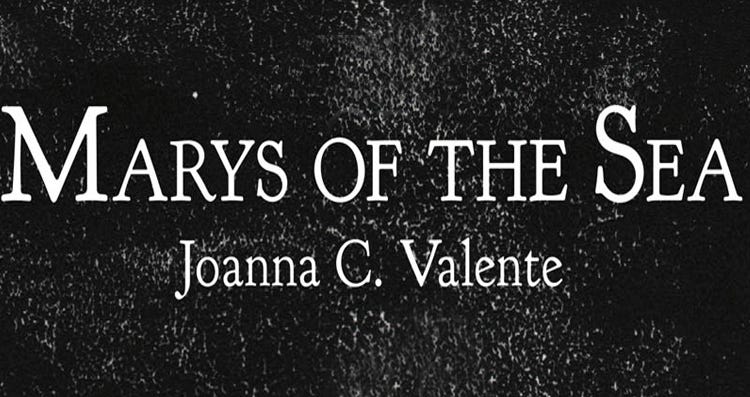Books & Culture
Words Are a Rebellious Scream
Joanna C. Valente’s poems are made from feelings distilled from profound, life-altering experiences, and they echo with truth and the strong, even voice of a true survivor

Joanna C. Valente’s Marys of the Sea is a rare poetry collection that deserves to be called many things, but perhaps uncomfortable is the only one that sets it apart and does it justice. Raw, real, and painfully honest, the poems in this book touch on subjects that range from physical abuse and loss to maternal love and the emotional connective tissue that turns physical pain into the shattering of the spirit. These poems are made from feelings distilled from profound, life-altering experiences, and they echo with truth and the strong, even voice of a true survivor.
From page one, Valente makes it clear that her poetry will tread on everything sacred in the name of catharsis, and that the treading will, through internalized and shared suffering, create its own religious experience. However, in order to participate of this communal experience, the reader must first endure the onslaught of violent, aching, spiritual imagery. And that is no easy task. Valente’s sharing is brutal and relentless; a bloody, tender wound that becomes a screaming voice that hopes for justice and demands healing, love, and rebirth through remembrance, through the tender celebration of all things lost.
“One day, I had come home from school knowing there
was a sickness in my gut. When the doctor asked me where
it hurt, I pointed. Bury it in the soil, he instructed — there was no chance unknowing. Dying children are only getting lonelier.
No one likes children but that doesn’t mean you don’t
have them.”
Perhaps the most impressive element of Marys of the Sea is that, while very obviously anchored in personal experiences and with communication and release as its main goals, it ends up being a powerful text that bridges the gap between Kant and the blind faith of the strongly devout. In this way, the collection, despite being emotionally gritty and concerned with both the past and the present, almost approximates transcendental poetry in the sense that, under all that ugliness and awful experiences, there is something that keeps the poet going, something that points to an inherent goodness in them and those around them and that makes survival the only viable option. Furthermore, the corruption of body and spirit is not a insurmountable obstacle but rather something that gives new shape to those who overcome it.
The difference between forgettable poetry collections and those that fly into the middle of the collective consciousness is sometimes timing, and this book comes at a perfect time. At a time of political tensions and upheaval, a time in which race and the female body have been thrown into the discussion as elements over which hegemonic powers can make decisions over the wishes of the overpowered Other, Valente’s words are a rebellious scream that refuses to speak anything but her truth. This is personal poetry that can be easily adopted and turned into flag by those inhabiting Otherness, those who feel like they don’t belong:
“We are two people at the bottom of a fish tank & sometimes we recognize
each other as open/closed parentheses.
Most other times, we don’t. We read self-help books to make us passionate
because our heart valves switched off
& things feel bad on the inside now in new America, my America full
of everyone but me.”

Marys of the Sea explores the universe of memories inside Valente and the world outside, and does it all in less than 100 pages. This collection is and simultaneously is beyond being feminine and feminist because it is too universal to be exclusive. These are poems about loss and desire, love and wanting to be loved, the shattered psyches and the body that accompanies it in an eternal ouroboros where pain might come to either first. These poems are a gospel for our times, and they deserve to be read as such.









